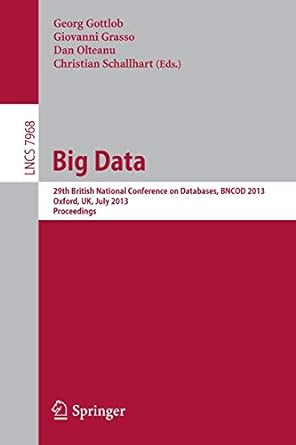/////////////////////////////////////////////////////// // // // // // Read carefully the comments in this starter file and // complete the required sections //////////////////////////////////////////////////////// //////////////////////////////////////////////////////// // DO NOT INCLUDE ANY OTHER LIBRARIES FOR THIS EXERCISE #include #include //////////////////////////////////////////////////////// //////////////////////////////////////////////////////////// // GLOBAL data! // In practice, we would rarely use global variables in our // program except for very specialized cases. However, we // haven't yet learned how to move arrays from one function // to another (that's next week!) - so for this week, we will // use a couple global arrays to do our work. // // Remember, global variables (as seen in Unit 2) live outside // any of the functions in our program in terms of memory // model, and can be accessed/changed by any function in our // code. int the_primes[100]; int the_integers[100]; int the_factors[100]; // // END of global data declarations //////////////////////////////////////////////////////// ///////////////////////////////////////////////////////// // Functions to be completed, read the description carefully ///////////////////////////////////////////////////////// void factorize(int idx) { //////////////////////////////////////////////////////// // This function receives the index of an entry in // the array of integers 'the_integers'. It takes // whatever entry is in the array, and produces a list // of prime factors which are then stored in the // array called the_factors[]. // // Example, suppose idx=1 // the_integers[1]=50 // This is just an example, // // it could be ANY number // // The prime factors of 50 are: // 2, 5, 5 (50 = 2*5*5, where 2, and 5 are prime numbers) // // So this function would store these prime factors in order // in the 'the_factors' array: // // the_factors[0]=2 // the_factors[1]=5 // the_factors[2]=5 // the_factors[3]=-1 // // Notice that the function stored a '-1' at the end of the // list of prime factors. This is so we know we reached the // end of the list of prime factors because different numbers // will fewer or more prime factors. // // If you're still unsure what's going on here, it may be a // good idea to spend a bit of time reviewing primes and // prime factors online. /////////////////////////////////////////////////////////// ////////////////////////////////////////////////////////// // TO DO: Complete this function ////////////////////////////////////////////////////////// } int is_prime(int x) { ////////////////////////////////////////////////////////// // This function tests x and returns 1 if x is prime, and // 0 if x is not prime. // // You're NOT allowed to use functions from the math // library here. // // x can be any arbitrary integer number. ///////////////////////////////////////////////////////// ///////////////////////////////////////////////////////// // TO DO: Complete this function ///////////////////////////////////////////////////////// return 0; } void primitive(void) { /////////////////////////////////////////////////////////// // // This function finds and stores the first 100 prime numbers // in the 'the_primes' array. It must make use of the // is_prime() function. // // 1 is NOT a prime (despite arguments to the contrary) // // There are no input arguments, and no return value. // //////////////////////////////////////////////////////////// ////////////////////////////////////////////////////////// // TO DO: Complete this function ////////////////////////////////////////////////////////// } // You DO NOT need to change any code below this line #ifndef __TESTING // <-- DO NOT REMOVE THESE COMPILER DIRECTIVES // they are required for our auto-testing int main() { // You do not need to change ANYTHING in main(). All your work // happens in the functions above. for (int i=0; i<100; i++) { // Just initializing our global arrays so there's no junk in them the_factors[i]=0; the_primes[i]=0; } // Fill in some integer values in the 'the_integers' array // since we go over the entire array and put values in it, // we didn't need to intialize it in the for loop above! for (int i=0; i<100; i++) the_integers[i]=i+2; // Call your function to generate the list of the first 100 primes primitive(); // Print out your list of prime numbers printf("The first 100 primes are: "); for (int i=0; i<100; i++) printf("%d, ",the_primes[i]); printf(" "); // Now factorize each of the numbers in 'the_integers' and print out // the list of prime factors printf("**** Printing out factorizations now: "); for (int i=0; i<100; i++) { factorize(i); printf("x=%d, factors: ",the_integers[i]); for (int j=0; j<100; j++) { if (the_factors[j]==-1) break; // A good use of break! printf("%d, ",the_factors[j]); } printf(" "); } return 0; } #endif // <-- DO NOT REMOVE THESE COMPILER DIRECTIVES // they are required for our auto-testing






